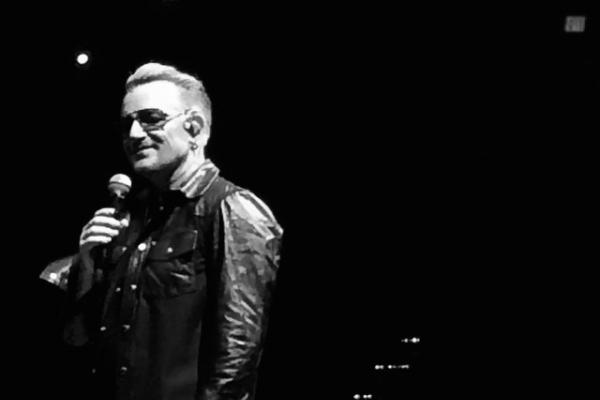When Ireland became the first country to legalize same-gender marriage by popular mandate, double rainbows appeared over Dublin, and an Irish rock band transformed their Arizona concert into a gay-rights celebration. Almost 30 years ago, Bono endured threats from angry Arizonans for his support of the U.S. national holiday for the late Rev. Martin Luther King Jr. But on Saturday, Bono invoked King as peacemaker as U2 celebrated the victory of love, turning the song “Pride (In The Name of Love)” into an anthem for gay pride.
...
Bono shared, “This is a moment to thank the people who bring us peace. It’s a moment for us to thank the people who brought peace to our country. We have peace in Ireland today! And in fact on this very day we have true equality in Ireland. Because millions turned up to vote yesterday to say, ‘love is the highest law in the land! Love! The biggest turnout in the history of the state, to say, ‘love is the highest law in the land!’ Because if God loves us, whoever we love, wherever we come from … then why can’t the state?’”
Read the Full Article

